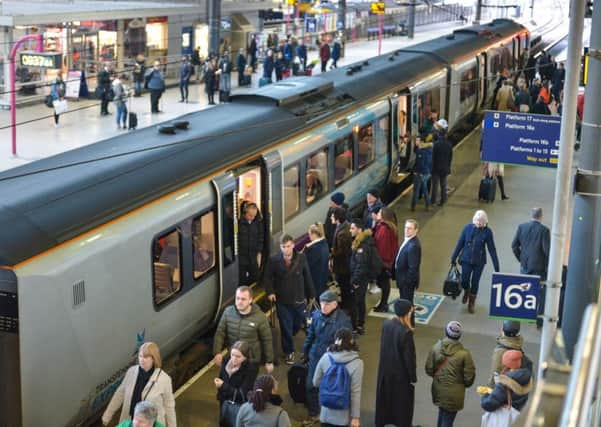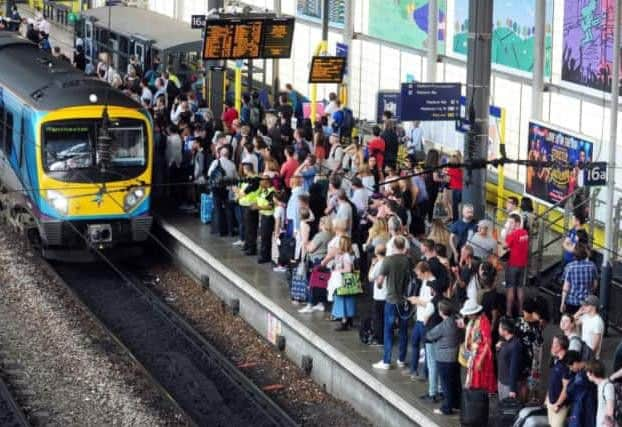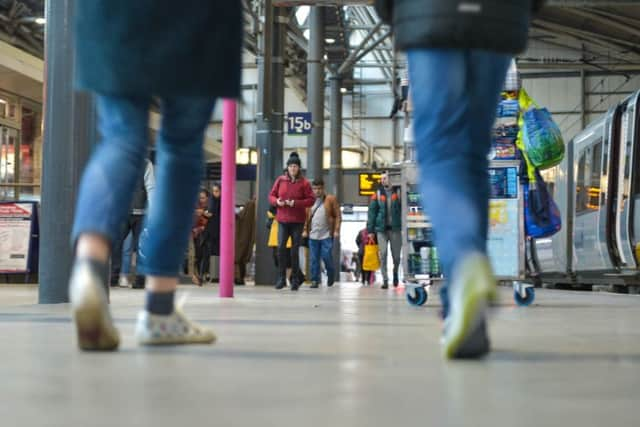Don’t make me listen to one more of those infernal train Tannoys – David Behrens


I learned this years ago when a colleague asked if I would advise her husband – let’s call him Kevin – on buying a computer. They were new then, and he hadn’t a clue, she said.
I gave him the benefit of my wisdom and thought no more about it until a year or so later, when a magazine cover caught my eye at the station bookstall. “Our expert tells you how to choose the best PC,” was the gist of the headline. I turned the page. Their expert was my colleague’s husband.
Advertisement
Hide AdAdvertisement
Hide AdI’ve been sceptical ever since about taking notice of anything whose provenance isn’t immediately clear. It’s why I pay so little heed to social media.


Perhaps it also helps to explain my disproportionate irritation at being told what to do by railway announcers on the Tannoy. It’s not just what they say that is unnecessary; it’s the way they say it, couched in terms designed to be understood by a child seeing a train for the first time.
Worst are the unnecessary and condescending announcements parroted by guards inside the carriages. “Please take a moment to consult the safety notices posted throughout the train.” Why? Have they changed since this morning?
Advertisement
Hide AdAdvertisement
Hide AdLike a benign form of Chinese water torture, the drip feed of pointless information, about minding the gap, having a valid ticket and taking care because the platforms may be slippery, interrupts thought and conversation, and adds to the stress of an already trying commute. They’re the oral equivalent of those adverts that pop up on websites – which Kevin could doubtless explain.


I had never been sure whether the announcements were mandated or just the result of guards liking the sound of their own voices; fancying that they might be heard by some travelling producer and asked to read the shipping forecast on Radio 4 the next day.
But a document put my way reveals that it’s all carefully scripted. Not, of course, by an actual scriptwriter, for this dialogue is some way short of David Mamet at his best – but written down nonetheless.
The instructions on how to convey information to passengers run to no fewer than 28 pages, and read like a “greatest hits” of the genre. Leaves on the line, overrunning engineering works; they’re all here.
Advertisement
Hide AdAdvertisement
Hide AdIt’s full of the usual jargon. “Our people are our biggest asset,” it says, by way of introduction, which is the very opposite of the truth. But it does betray one or two trade secrets.
The section headed “top tips for successful announcing”, for instance, is really an exercise in passing the buck, with staff instructed to use the word ‘delayed’ instead of ‘late’, and thus imply that it’s someone else’s fault.
They are also told to leave notes for the next person on the shift, lest passengers be given different reasons for the same delay – an eventuality that can only have been caused by people making them up.
Advertisement
Hide AdAdvertisement
Hide AdThe document was drawn up some years ago for East Coast, the publicly-owned operator created to run the Yorkshire to London main line when the first two franchisees gave it up.
Not much has changed since then, except for the advice to staff that they “know more than the passengers”.
About what? How the railways are supposed to work? I think not.
Advertisement
Hide AdAdvertisement
Hide AdIn an age where travellers talk to each other – if not to their faces then on Twitter – information travels a lot faster than the trains, and staff who are reliant on methods of communication devised in the steam age, are often the last to hear.
So here’s an idea: let’s get the passengers to make the announcements instead. How much more refreshing would it be to hear this when you got on board: “We apologise that there aren’t enough seats and that the ones we do have were last vacuumed in 1997. We’re also sorry that you’re being charged six quid for a journey you could have done on a bike in half the time and for free.
“And by the by, we’re not going anywhere because there’s a broken-down train to Pontefract in front of us.”
Rather that than another interminable diatribe about looking after your luggage. I’d sooner listen to Kevin – at least he was getting his information from someone who knew what he was talking about.